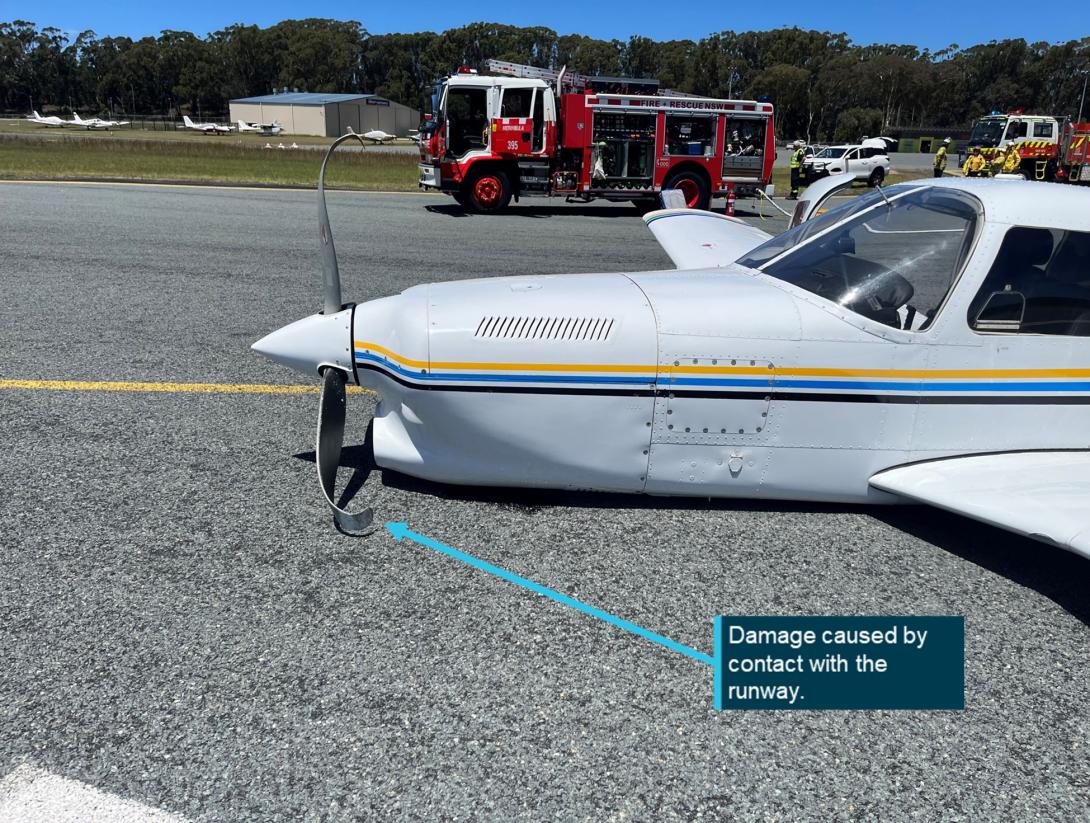What happened
At about 1200 local time on 20 December 2024, a Piper PA-32R-301T was conducting a manual propeller pitch and retractable undercarriage endorsement at Merimbula Airport, New South Wales. The pilot in command, along with a flight instructor were on board.
The pilot in command, under instruction of the flight instructor, was conducting a simulated forced landing at the airport. They maintained a high nose attitude which was rectified twice during the approach sequence and then deployed the aircraft’s flaps at the same time the instructor was initiating final landing checks. Shortly after, as the aircraft was positioned to land on final approach, the nose pitched up and the instructor’s focus was shifted to the imminent landing. The aircraft landed moments later with the landing gear retracted. The instructor later advised that once it was observed that the landing gear had not been released it was too late to extend the gear.
Both crew reported that they had not heard the landing gear warning horn activate during the landing flare, and the instructor reported that distraction to maintain a glide speed contributed to the wheels up landing.
The aircraft sustained minor damage to the propellor, flaps, gear doors and underside of the fuselage including the access leg (Figure 1).
Figure 1: Aircraft damage

Source: Operator, annotated by the ATSB
Safety message
Noting that student pilots are not as familiar with the performance of the aircraft, it is imperative that instructors maintain an overall sense of awareness inside the aircraft while conducting training and endorsement flights.
Pilots must also ensure that all pre-landing checklists are carried out systematically as detailed in the flight manual. If interrupted or distraction occurs, it is best practice to start again from the beginning to ensure that nothing is missed.
About this report
Decisions regarding whether to conduct an investigation, and the scope of an investigation, are based on many factors, including the level of safety benefit likely to be obtained from an investigation. For this occurrence, no investigation has been conducted and the ATSB did not verify the accuracy of the information. A brief description has been written using information supplied in the notification and any follow-up information in order to produce a short summary report, and allow for greater industry awareness of potential safety issues and possible safety actions.


